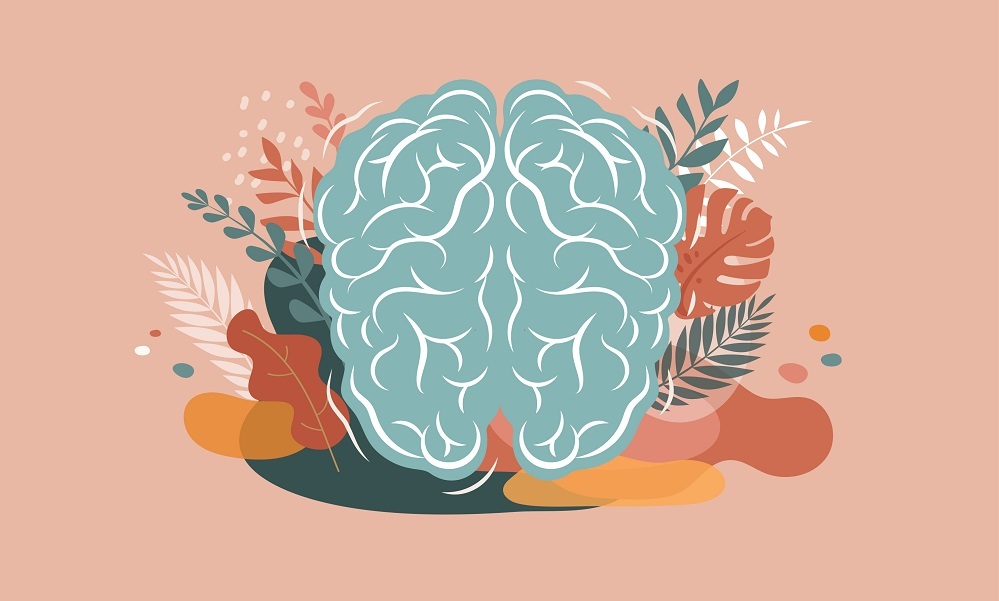Mindfulness is a practice that helps us pay attention to the present moment with openness, curiosity and without judgement.
Mindfulness can help to aid concentration and productivity, reduce worry and anxiety, and allow us to develop a sense of connectedness and empathy. (Bartlett et al., 2019; Blanck et al., 2018).
Dr Addie Wootten is a clinical psychologist and CEO of Smiling Mind, a web and app-based meditation program. She says there are two ways to practice mindfulness – formal and informal.
‘Meditation involves us sitting or lying down, consciously deciding to train our attention on one thing at one time, and trying to build awareness of any thoughts that might come up and trying not to react to those thoughts, so that’s formal mindfulness practice,’ Wootten shares.
With informal practice you bring the same kind of improved attention that you might get from formal practice to everyday situations.
‘You can be mindful in anything that you do,’ Wootten says. ‘So when you’re brushing your teeth you can be mindful, when you’re walking you can be mindful, when you’re talking to someone you can be mindful, and that is because when you’re doing those activities you’re consciously making sure that your mind is focused on that one thing at that one time.
‘A good example of the opposite of that everyday mindfulness is when our mind wanders. So I’m sure you’ve been introduced to somebody in the past and you say, “hi, nice to meet you” and then their name goes completely out of your mind. That is not being mindful. So when we’re mindful we consciously listen to what somebody has said and that actually helps us because it goes into our memory a lot more efficiently.’
The impact of mindfulness on physical health
There is lots of research pointing to the benefits of mindfulness on our overall health. Wootten says the biggest area of impact on our physical body is actually in relation to our stress response.
‘We know from lots of research that when our body is under stress – constant, prolonged stress – it actually has a lot of flow-on impacts in terms of our physical health that can lead to heart issues, it can lead to high cholesterol, it can lead to bone density loss. Lots of core physical functions are impacted by high levels of stress,’ Wootten says.
‘So when people practice mindfulness, we can see that that actually changes. Our body becomes less reactive to stress, there’s less release of our stress hormones like cortisol and … while it may not be experiencing less stress in everyday life (people may still be experiencing difficult things in their life) the body is not reacting as much. There’s less physiological reaction, which can have a whole range of flow-on benefits in terms of your physical health.’
Wootten also points to a body of research that’s explored the role of mindfulness in supporting people with chronic pain.
‘In many pain programs that are run by different hospitals, they run mindfulness programs and that’s allowed researchers to look at the impact; and there is a link between practicing mindfulness and reductions in the intensity of chronic pain,’ she says.
Impact of mindfulness on mental health and mood
Wootten says while mindfulness isn’t a ‘cure-all’ for everything, it can help to improve our mood and mental health by teaching us to react and respond to things in a slightly different way. ‘Mindfulness isn’t about being happy all the time or living in bliss unfortunately, it is about learning how to experience all of life’s challenges in a way that is helpful for us.
‘We’re all going to go through difficult things and mindfulness isn’t going to get rid of all those difficult things. But what it can do is help us build resilience and the skills and the tools to navigate those stresses. And the way that it does that is that it allows us to learn how to create a space between what’s happening and our own reaction.’
She says there is also lots of research being done in the space of chronic, recurring depression. ‘People who experience really significant depression, they’ve run trials to look at how mindfulness can help that group of people and it does. It seems to reduce the intensity of depression and the chance of depression recurring.
‘It certainly helps with anxiety too. So if you think what causes anxiety is often our rumination and our worry. When you practice mindfulness you’re learning to manage those things. There’s certainly evidence to suggest that mindfulness practice is a really good tool to reduce anxiety.’
When it comes to improving our general mood, Wootten says it’s not necessarily about trying to be happy all the time, but instead noticing the small things around us that bring us joy.
‘It might be that we start to grow an awareness of gratitude about the fact we might have a great job that we love, or we might have a wonderful family or good friends. We start to notice those things that we sometimes take for granted. It actually can result in improved mood because of those factors, you start to become aware and appreciative of the smaller things in life, which can lead to better mood.’
Meditation has been shown to improve the quality and efficiency of sleep, how quickly you fall asleep, and how long you can stay awake during the day.
Mindfulness to improve sleep
Sleep is a challenge for lots of people. According to a report from the Sleep Health Foundation, almost 60 per cent of Australians regularly experience at least one sleep symptom (like trouble falling or staying asleep), and 14.8 per cent have symptoms, which could result in a diagnosis of clinical insomnia.
These days we spend a lot of time in front of a computer screen or using our phones and, for many people, this can take place right up until they get into bed at night. This impacts our physiology and how we sleep in different ways, Wootten says.
‘The first being that devices emit a blue light and that actually mucks up our circadian rhythm – so our body thinks we should be awake because of the light, so that means it’s hard to fall asleep. And the other factor is it activates our thinking. So if we’re checking emails for example before we go to bed, chances are that will trigger a thought and we’ll think “oh, don’t forget to do that tomorrow” and so your body will become activated. So that’s really bad for our sleep.
‘The way mindfulness can help us is to actually be a circuit breaker. So, if we can factor in a 10 minute meditation before we go off to sleep, to calm our bodies, to really relax our body and our mind and try and let go of the day and fall off to sleep, then that’s a good tool to get off to sleep.’
Incorporating mindfulness into your life
The benefits of practicing mindfulness are plentiful, but how do you get started? According to Wootten, it’s important to start off slowly and explore what works best for you.
‘There are lots of different ways you can try meditation. You can go and find a teacher and learn from someone in person, you can listen to guided meditations or you can download an app.
‘I suppose my biggest suggestion is don’t try once and then give up. I think a lot of people try it and think, “oh my mind is too busy, I can’t stop thinking, I’m doing it wrong”. And we all go through that, it’s very normal, it’s human nature to think, it’s what our brain does. If you notice that your mind is wandering and thinking, you’re doing it properly. That’s what it’s designed to do. So, meditation isn’t about completely clearing your mind, it’s about being aware that you are thinking and then bringing it back to one thing.’
Another way to start exploring being more mindful, Wootten says, is to start incorporating it more into your day-to-day life. ‘Just pay attention to where your mind is and if it’s off thinking about other things, try and bring it back to what you’re doing at that point in time – even if it is washing the dishes. Notice how your hands feel, what do the soap suds feel like, what do the dishes actually feel like? And that, in itself, is a mindfulness practice.’
References and related reading
Bartlett, L., Martin, A., Neil, A. L., Memish, K., Otahal, P., Kilpatrick, M., & Sanderson, K. (2019). A Systematic Review and Meta-Analysis of Workplace Mindfulness Training Randomized Controlled Trials. Journal of Occupational Health Psychology, 24(1), 108-126.
Black, D. S., O’Reilly, G. A., Olmstead, R., Breen, E. C., & Irwin, M. R. (2015). Mindfulness meditation and improvement in sleep quality and daytime impairment among older adults with sleep disturbances: a randomized clinical trial. JAMA Intern. Med., 175(4), 494-501. doi:10.1001/jamainternmed.2014.8081
Blanck, P., Perleth, S., Heidenreich, T., Kröger, P., Ditzen, B., Bents, H., & Mander, J. (2018). Effects of mindfulness exercises as stand-alone intervention on symptoms of anxiety and depression: Systematic review and meta-analysis. Behaviour Research and Therapy, 102, 25–35. https://doi.org/10.1016/j.brat.2017.12.002
Reynolds, A. C., Appleton, S. L., Gill, T. K., & Adams, R. J. (2019). Chronic Insomnia Disorder in Australia. A Report to the Sleep Health Foundation. Sleep Health Foundation.
How do you care for your own health and wellbeing? Do you have any tips that you’d share with your colleagues in education? We’d love to hear about it. Email us with a brief outline and we’ll be in touch.


